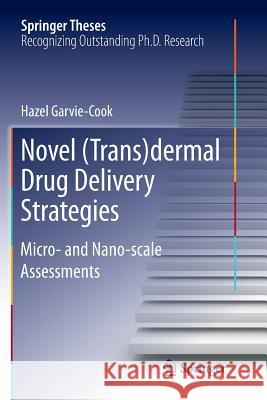Novel (Trans)Dermal Drug Delivery Strategies: Micro- And Nano-Scale Assessments » książka
topmenu
Novel (Trans)Dermal Drug Delivery Strategies: Micro- And Nano-Scale Assessments
ISBN-13: 9783319804538 / Angielski / Miękka / 2018 / 114 str.
Kategorie BISAC:
Wydawca:
Springer
Seria wydawnicza:
Język:
Angielski
ISBN-13:
9783319804538
Rok wydania:
2018
Wydanie:
Softcover Repri
Ilość stron:
114
Waga:
0.20 kg
Wymiary:
23.39 x 15.6 x 0.74
Oprawa:
Miękka
Wolumenów:
01
Dodatkowe informacje:
Wydanie ilustrowane











